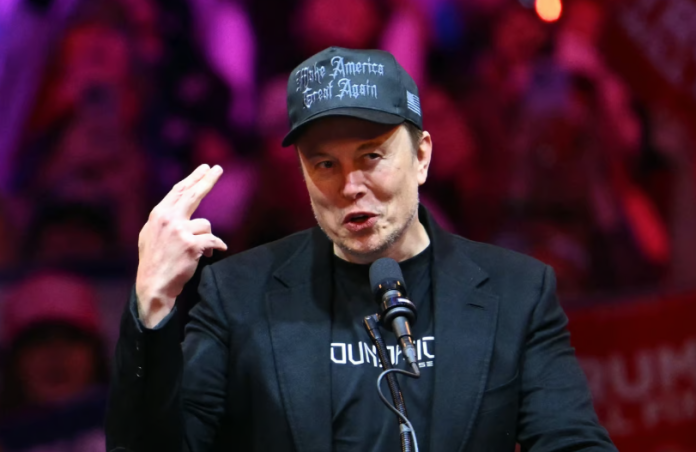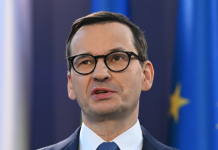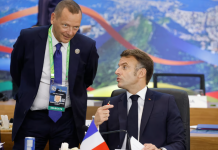
Elon Musk’s live chat with Alice Weidel of the AfD on X comes as Germany’s national election looms.
Ahead of tech billionaire Elon Musk’s live-streamed chat with Alice Weidel, the far-right Alternative for Germany (AfD) party’s chancellor candidate, there’s one thing we’re pretty sure we can rule out: a critical discussion involving competing views.
Since Musk endorsed the AfD in a post on X in December, writing “Only the AfD can save Germany,” the affection between the party leader and the tech billionaire has been palpable.
“Yes! You are perfectly right!” Weidel posted on X in reponse to Musk’s endorsement.
Aside from a generous dollop of far-right bonhomie, here’s a quick rundown of what else to expect when the pair virtually sit down together on X.
1. A lack of structure
The live, audio-only discussion is taking place on Thursday at 7 p.m. CET and 1 p.m. EST on the streaming feature of Musk’s platform X, called Spaces. If Musk’s previous livestream discussion with then-candidate Donald Trump back in August proves to be any guide, the conversation will be largely unstructured and rambling, and possibly glitchy.
The chat is scheduled to last up to an hour and is intended to be largely off the cuff, a spokesperson for Weidel told Politico’s Berlin Playbook, as this is in line with “Musk’s nature.”
2. The far-right echo chamber in action
At risk of stating the obvious, don’t expect a balanced and deeply nuanced discussion of the state of German politics.
In an opinion essay he wrote for German newspaper Welt am Sonntag, Musk argued that his “significant investments” in Germany — there’s a Tesla gigafactory outside Berlin — give him the right to opine about Europe’s largest economy.
But it seems that Musk gets much of his information about Germany from X, which critics say increasingly resembles a far-right echo chamber. Musk, for instance, has reposted videos of Naomi Seibt, a right-wing influencer known for her closeness to the AfD and denial of climate change caused by humans, who German media have dubbed the “anti-Greta,” in reference to Swedish climate activist Greta Thunberg. (In one video reposted by Musk, she described the German Greens’ environmental policies as “eco-socialist national suicide.”)

In the past, Musk has seemed to struggle to try to understand German politics.
“Why is there such a negative reaction from some about AfD?” Musk wrote on his X platform in June. “They keep saying ‘far right,’ but the policies of AfD that I’ve read about don’t sound extremist. Maybe I’m missing something.”
While Musk has since embraced the AfD, Germany’s federal domestic intelligence agency continues to surveil the party, classifying it as a suspected extremist organization.
3. Weidel’s true colors?
Although Weidel positions herself as a relative moderate in comparison to other AfD leaders, it possible she could get a little more radical in the friendly company of Musk.
In an interview with a U.S. outlet The American Conservative published this week, Weidel referred to Germans as a “defeated people” and suggested they were “slaves” to the U.S.
Anyone familiar with German radical-right ideology will recognize at least a hint of victim-perpetrator reversal there that posits the Germans as victims of history. Given that Musk is the AfD’s new American friend, we wonder if the subject will come up.
4. Whether there’s an impact on the polls
Reputable pollsters in Germany say Musk’s endorsement may not end up making much of a difference in Germany’s Feb. 23 early election.
“In the first survey we conducted this year, we found that this has not yet benefited the AfD,” Manfred Güllner, the head of the Forsa Institute, said. “I don’t see very much potential for future change because Musk has become a negative figure.”
Musk’s endorsement, however, does have the potential to help legitimize a party that German mainstream politicians have endeavored to depict as an utterly taboo choice.
All that we can say for certain is that the AfD is doing well, currently polling in second place at 20 percent, having risen a few percentage points in recent months.
5. Legal trouble
The talk between Musk and Weidel is unlikely to be the end of this new transatlantic lovefest. But there may be lingering legal consequeces.

The European Commission earlier this week said that Musk could land in legal trouble under the terms of the EU’s new digital rulebook over the livestream, depending on the extent to which it is deemed to boost the AfD unfairly over rivals.
Moreover, under German law, the event could potentially be deemed an illegal donation in the form of “election advertising by third parties,” transparency watchdog LobbyControl said in a statement, which could result in a hefty fine for the AfD.





















